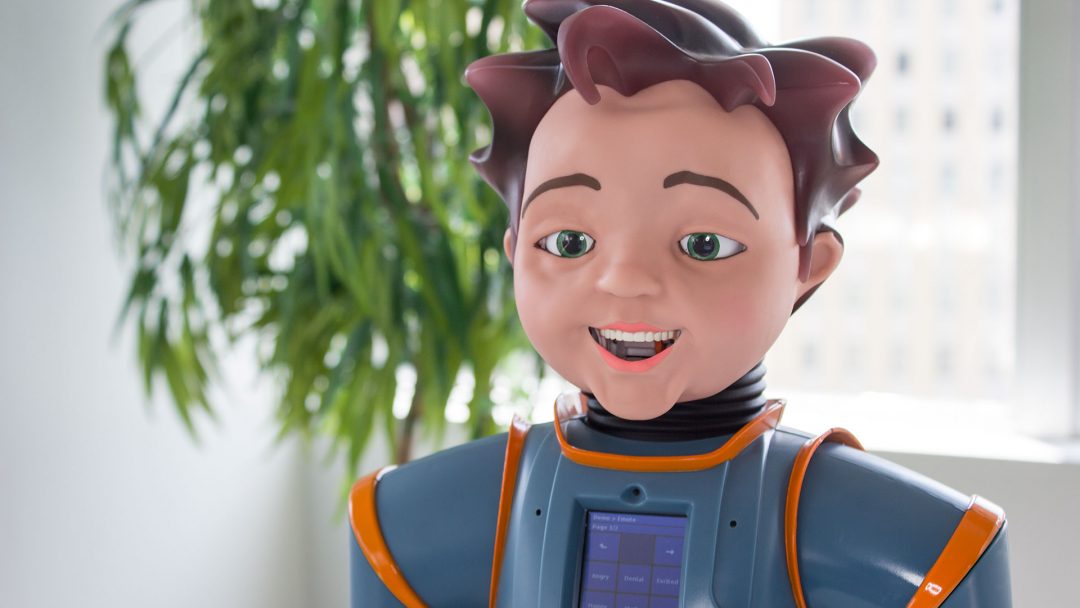Spartanburg District 2 has made an investment in the future of their students with Autism Spectrum Disorder (ASD). Milo, a facially-expressive humanoid robot and product of Robots4Autism, is the center of a program and curriculum that is being used across the country to help teach social skills to students with ASD. Milo is being implemented at Shoally Creek Elementary School in Boiling Springs, SC, and at Rainbow Lake Middle School in Chesnee, according to a report by 7News: New robots at Spartanburg District 2 helping students with autism. According to Mark Child, marketing director with RoboKind, the beauty of Milo is that “he can teach the same lesson over and over. He never gets tired. He never gets frustrated. He uses the same tone of voice.”
Spartanburg District 2 purchased Milo and the Robots4Autism program after seeing the results from another Spartanburg school district. A case study by Interactive Educational Systems Design, Inc., details the incredible success of a year-long pilot at the McCarthy Teszler School, also in Spartanburg, SC. The administrators at the school “discovered that Milo was an extremely effective way to engage their students with autism and teach social skills, communication skills, and behavior management.”
The pilot program began with 17 students who represented some of the most challenging cases in the county. All of the students in the study had been showing minimal progress toward their individualized education program (IEP) goals, but the results of the pilot program were profound. In just 2 1/2 months of using Milo, all 17 students achieved their behavioral intervention plan to extend their school day in order to attend full-day classes. Additionally, all of the students demonstrated significant progress related to their social, communication, and education goals. Eight of the students in the study showed improvements on “both the 4-score index and the 6-score index on the GARS-3,” and five or six of the students would actually be able to start the following school year in a mainstream classroom.
Spartanburg provides a great model for any school district in the country that seeks to improve their programs for students with ASD and provide life-changing opportunities for these students and their families. Milo is simple to deploy, requires minimal training and support for the instructors and aides, and is affordable, as well. Spartanburg was able to pay for the program with federal funds. The results of the study confirm what others are finding as more schools across the country implement Robots4Autism. Most importantly, the dramatic improvements make the program an essential tool for any institution providing education for students with ASD.
